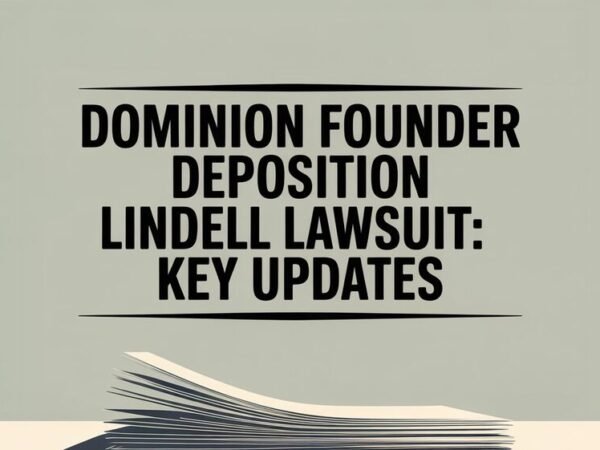Estate planning might sound intimidating, conjuring images of complicated legal documents and endless attorney meetings. However, it’s a crucial step for anyone who wants to ensure their assets are handled according to their wishes after they’re gone. Understanding estate planning can make a significant difference for you and your loved ones in Illinois and the Chicagoland area.
This blog is designed to demystify the concept of estate planning. Whether you’re a seasoned planner or new to the idea, we’ll break down the essentials. We’ll explore everything from simple wills to the complexities of trusts and why each component is vital for a secure future.
What is Estate Planning?
At its core, estate planning is about making decisions today that will influence what happens to your assets in the future. It involves creating documents that specify how your property should be distributed after death. This process isn’t just for the wealthy; everyone can benefit from having a plan in place.
Estate planning goes beyond drafting a will. It encompasses setting up trusts, designating powers of attorney, and establishing healthcare directives. By thinking ahead, you can provide clear instructions that align with your values and ensure your wishes are respected.
Estate planning in Illinois also helps minimize taxes and legal fees, ensuring more of your assets go to your beneficiaries. Plus, it spares your loved ones from making difficult decisions during emotionally taxing times. By planning thoughtfully, you pave the way for a smoother transition.
The Importance of Having a Will
A will is a foundational component of any estate plan. It’s a legal document that outlines how you want your assets distributed after you pass away. Without a will, state laws will determine the distribution, which may not align with your wishes.
Creating a will allows you to choose your beneficiaries. You can specify who receives what: family heirlooms, savings, or real estate. This clarity can prevent disputes among heirs and ensure your loved ones are cared for as you intended.
Additionally, a will allows you to name a guardian for your minor children. In the event of your passing, you can ensure that your children are cared for by someone you trust. This crucial decision can provide peace of mind and security for your family’s future.
Exploring the Benefits of Trusts
Trusts often complement a will in an estate plan. While a will comes into play posthumously, a trust can manage your assets both during your lifetime and after your death. Trusts offer flexibility and can help avoid probate, which is a time-consuming and often costly legal process.
A revocable living trust, for example, allows you to retain control over your assets while you’re alive. You can modify or revoke it at any time. Upon your passing, the trust becomes irrevocable, ensuring seamless asset distribution without the need for probate.
Trusts can also provide tax advantages and protect your privacy. Unlike wills, trusts aren’t filed with the court, so your assets and their beneficiaries remain private. This aspect can be particularly appealing to individuals who prioritize confidentiality.
Powers of Attorney Explained
Powers of attorney (POA) are legal documents that authorize someone to decide on your behalf. There are generally two types—financial and healthcare. Financial POA enables someone to handle your financial affairs if you become incapacitated, while healthcare POA designates someone to make medical decisions for you.
A POA ensures your preferences are honored even if you can’t voice them yourself. It would help to choose someone you trust implicitly, as they will have significant control over your finances or healthcare decisions.
A POA can prevent court intervention, known as guardianship or conservatorship, which can be costly and time-consuming. By proactively appointing a POA, you gain control over who makes important decisions on your behalf.
The Role of Healthcare Directives
Healthcare directives, also known as living wills, outline your medical wishes in case you cannot communicate them. They specify the types of medical treatment you do or do not want. This might include life-sustaining measures such as resuscitation or mechanical ventilation.
Having a healthcare directive reduces the burden on your family, sparing them from making heart-wrenching decisions during emotional times. It ensures that your medical care aligns with your values and beliefs, providing peace of mind for you and your loved ones.
Discussing your healthcare wishes with your family and designated healthcare agent is crucial. Open communication ensures that everyone understands your preferences and can act accordingly when the time comes.
Personal Property Distribution
Another critical aspect of estate planning is deciding how your personal property, including belongings like jewelry, furniture, and family heirlooms, will be distributed. These items often hold sentimental value, making it essential to specify your wishes.
Creating a detailed list of personal property and designating beneficiaries can prevent conflicts among heirs. Your estate plan should outline how each item will be distributed, ensuring your belongings go to those you intend.
Personal property distribution in your estate plan demonstrates forethought and care for your loved ones. It ensures that cherished items are passed down according to your wishes.
Understanding Funeral and Services Directives
Funeral and services directives are another component of comprehensive estate planning. These directives outline your funeral arrangements, memorials, and burial or cremation preferences. By specifying your wishes, you ease the burden on your family during an already challenging time.
Your directives might include details about the type of funeral service you desire, any specific religious or cultural practices, and even the music or readings you’d like included. Pre-planning these aspects ensures that your farewell reflects your values and beliefs.
Sharing your funeral and service preferences with your family and including them in your estate plan ensures clarity and alignment with your final wishes. It’s a thoughtful gesture that provides comfort to your loved ones.
Planning for Minor Children
If you have minor children, estate planning becomes even more critical. Beyond naming a guardian in your will, you may want to establish a trust to provide for their financial future. A trust can manage assets on behalf of your children until they reach a specified age.
Setting up a trust ensures that your children’s financial needs are met, including education, healthcare, and general support. You can outline how and when the funds should be distributed, providing structure and stability for their upbringing.
Planning for your children’s future provides peace of mind, knowing they will be cared for and financially supported in your absence. It’s an integral part of estate planning that prioritizes their well-being.
Navigating Uncontested Probate
Probate is the legal process for settling a deceased person’s estate. While it’s often necessary, probate can be complex and time-consuming. An uncontested probate occurs when there are no disputes over the will or its execution.
Working with an experienced attorney can simplify the probate process, ensuring your estate is administered smoothly and efficiently. Addressing potential issues in advance can help your loved ones avoid unnecessary stress and delays.
Understanding probate and planning for it is an essential aspect of estate planning. Considering its implications, you can streamline the process and give your family a more straightforward path forward.
Simplifying Small Estate Probate
Illinois offers a simplified probate process known as small estate probate for smaller estates. This option is available for estates valued at $100,000 or less without real estate. Small estate probate streamlines the administration process, making it more accessible.
You may need to complete a Small Estate Affidavit outlining the estate’s assets and beneficiaries to qualify. This document substitutes for formal probate proceedings, allowing assets to be distributed more quickly.
Understanding the requirements and benefits of small estate probate can help you determine whether it’s the right option for your situation. It offers a straightforward way to settle smaller estates while minimizing legal complexities.
Understanding Trust Administration
Trust administration involves managing a trust according to its terms and the grantor’s wishes. When you set up a trust, you must appoint a trustee—a person or entity responsible for carrying out your intentions.
A well-organized trust administration ensures that assets are distributed to beneficiaries as intended. It encompasses asset inventory, valuation, distribution, and debt and expense management.
Working with an experienced attorney can provide valuable guidance throughout the trust administration process. They can help ensure compliance with legal requirements and facilitate a seamless transition of assets to your beneficiaries.
Taking the Next Steps
Estate planning is a vital process that empowers you to make informed decisions about your future and your loved one’s well-being. By understanding the various components of estate planning, you can tailor a plan that aligns with your values and priorities.
If you’re ready to take the following steps in estate planning, consider seeking professional guidance. An experienced attorney can help you navigate the complexities and ensure your plan is comprehensive and practical.
For those residing in Illinois, the team at Illinois Estate Plan is here to assist you. With flat-fee, virtual, and comprehensive services, our down-to-earth attorneys prioritize your needs and provide personalized support. Book a consultation today and secure your estate’s future with confidence.
Also read interesting articles at Disboard.co.uk













